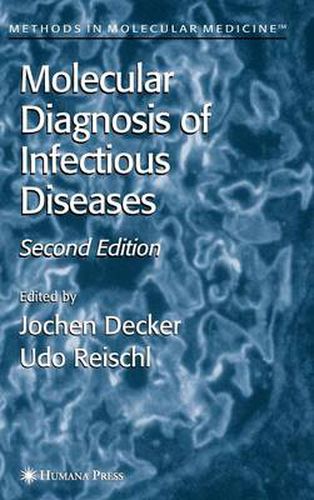Readings Newsletter
Become a Readings Member to make your shopping experience even easier.
Sign in or sign up for free!
You’re not far away from qualifying for FREE standard shipping within Australia
You’ve qualified for FREE standard shipping within Australia
The cart is loading…






This title is printed to order. This book may have been self-published. If so, we cannot guarantee the quality of the content. In the main most books will have gone through the editing process however some may not. We therefore suggest that you be aware of this before ordering this book. If in doubt check either the author or publisher’s details as we are unable to accept any returns unless they are faulty. Please contact us if you have any questions.
This second edition of a classic laboratory manual describes cutting-edge methods for the protein-based diagnosis of infectious diseases. Explaining the latest developments in genomics, proteomics, bioinformatics, biosensors, high-throughput devices, and recombinant technology, the authors apply these new methodologies successfully to the identification and characterization of valuable diagnostic markers, immunomodulatory components, epitope mapping, the production and purification of recombinant antigens, as well as to diagnostic reagents in immunological assays.
$9.00 standard shipping within Australia
FREE standard shipping within Australia for orders over $100.00
Express & International shipping calculated at checkout
This title is printed to order. This book may have been self-published. If so, we cannot guarantee the quality of the content. In the main most books will have gone through the editing process however some may not. We therefore suggest that you be aware of this before ordering this book. If in doubt check either the author or publisher’s details as we are unable to accept any returns unless they are faulty. Please contact us if you have any questions.
This second edition of a classic laboratory manual describes cutting-edge methods for the protein-based diagnosis of infectious diseases. Explaining the latest developments in genomics, proteomics, bioinformatics, biosensors, high-throughput devices, and recombinant technology, the authors apply these new methodologies successfully to the identification and characterization of valuable diagnostic markers, immunomodulatory components, epitope mapping, the production and purification of recombinant antigens, as well as to diagnostic reagents in immunological assays.